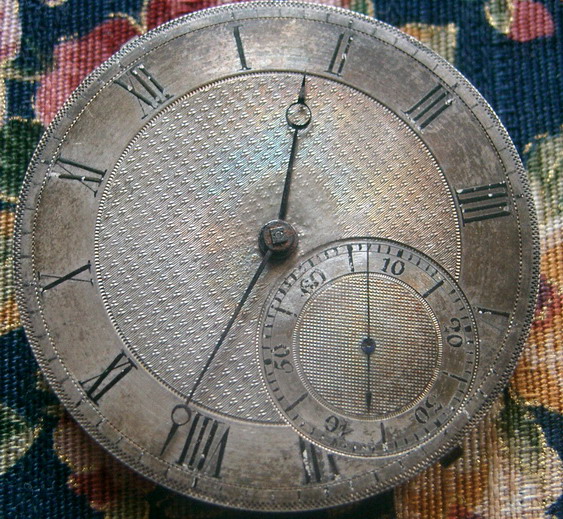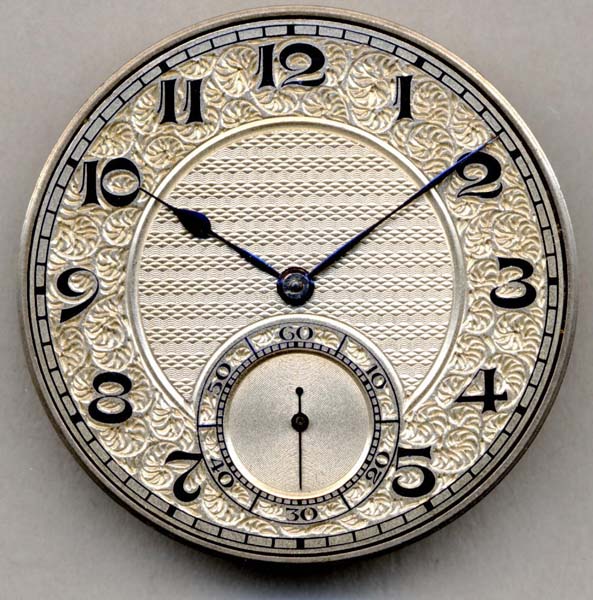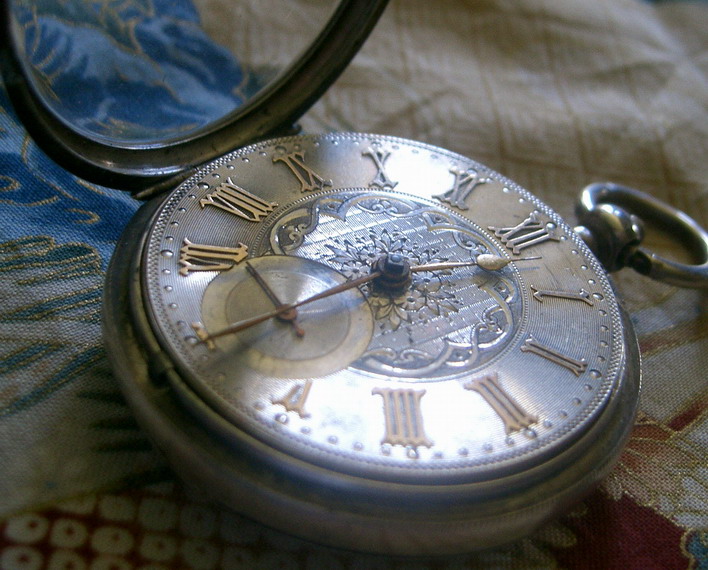
| WWT Shows | CLICK TO: Join and Support Internet Horology Club 185™ | IHC185™ Forums |

|
• Check Out Our... • • TWO Book Offer! • |
Welcome Aboard IHC185™  Internet Horology Club 185
Internet Horology Club 185  IHC185™ Discussion Site Main Page
IHC185™ Discussion Site Main Page  Our Exclusive "Timekeepers Photo Gallery"
Our Exclusive "Timekeepers Photo Gallery"  IHC185™ "Timekeepers Photo Gallery"
IHC185™ "Timekeepers Photo Gallery"  Silver dials
Silver dials
 Internet Horology Club 185
Internet Horology Club 185  IHC185™ Discussion Site Main Page
IHC185™ Discussion Site Main Page  Our Exclusive "Timekeepers Photo Gallery"
Our Exclusive "Timekeepers Photo Gallery"  IHC185™ "Timekeepers Photo Gallery"
IHC185™ "Timekeepers Photo Gallery"  Silver dials
Silver dialsGo  | New Topic  | Find-Or-Search  | Notify  | Tools  | Reply to Post  |  |
hallmarks here on the outer case. The Lion passant..From 1549 until 1821 it is guardant and no longer crowned. After 1821 the lion is no longer guardant. Now I thought Passant was not looking at you,and gaurdant was looking at you,can someone clear this up for me?On the inner case were there is very little wear,this lion is looking at me.  | ||||
This is a picture of the dial on my "new" Dent fusee.it is circa 1841-49 based on the makers street address. I do not know if the dial is original,but I hope so.It needs work,but will be a understated beauty when cleaned up.(I hope)  | ||||
My contribution to the silver dial topic.  | ||||
I have seen these fancy silver dials on some Waltham watches sold in England. I do not know if the Waltham agent put these on or if they were switched later by some watchmaker. Here is one with a gold dial currently on eBay - gold dial. On later American watches, silver dials become more common on 12-size watches. This is my favorite, from an Illinois --  | ||||
Here's a nice old sculptured, solid silver dial marked Girad of Geneve. It's currently installed in a silver KW,KS OF Pocket Watch marked Kibble 22 Gracechurch St. & 51 Ludgate Hill in London. I'd estimate it to be C. 1850'2. NOTE:- I Plan to auction this watch on the IHC website in the coming weeks. Dave Dave Freeman IHC Member 321 | ||||
Stephen, In a book of heraldry that I picked up recently, the discussion notes that in heraldry, at least, the lion and the leopard are designations for the lion looking away and looking at the viewer. "In antiquity, the lion always has a very thick mane and always shown in profile. The leopard, having a smaller mane is always shown looking at the observer. Therefore, the lion walking with one forepaw raised and looking at the observer is called "lion passant guardant--leopard." A lion walking and looking to the front is lion passant--lion leoparde (accent egoute). A lion with both forepaws raised and looking at the observer: lion rampant guardant--leopard lionne (accent egoute). The leopard is always looking at the observer--lion guardant." (The second term is from the old French; the first are current English heraldic terms (as of 1979, which the book was published). These are designations are used for shields, flags, etc to designate the monarch or different levels of nobles or countries. But there must be some connection with trademarking because the terminology and many of the images are similar. I don't know if trademarks use the "leopard" for a lion guardant. However, my book of heraldry has 47 different positions for lions, ending with the chimera. Jessica | ||||
| Powered by Social Strata |
| Your request is being processed... |
|
©2002-2025 Internet Horology Club 185™ - Lindell V. Riddle President - All Rights Reserved Worldwide


